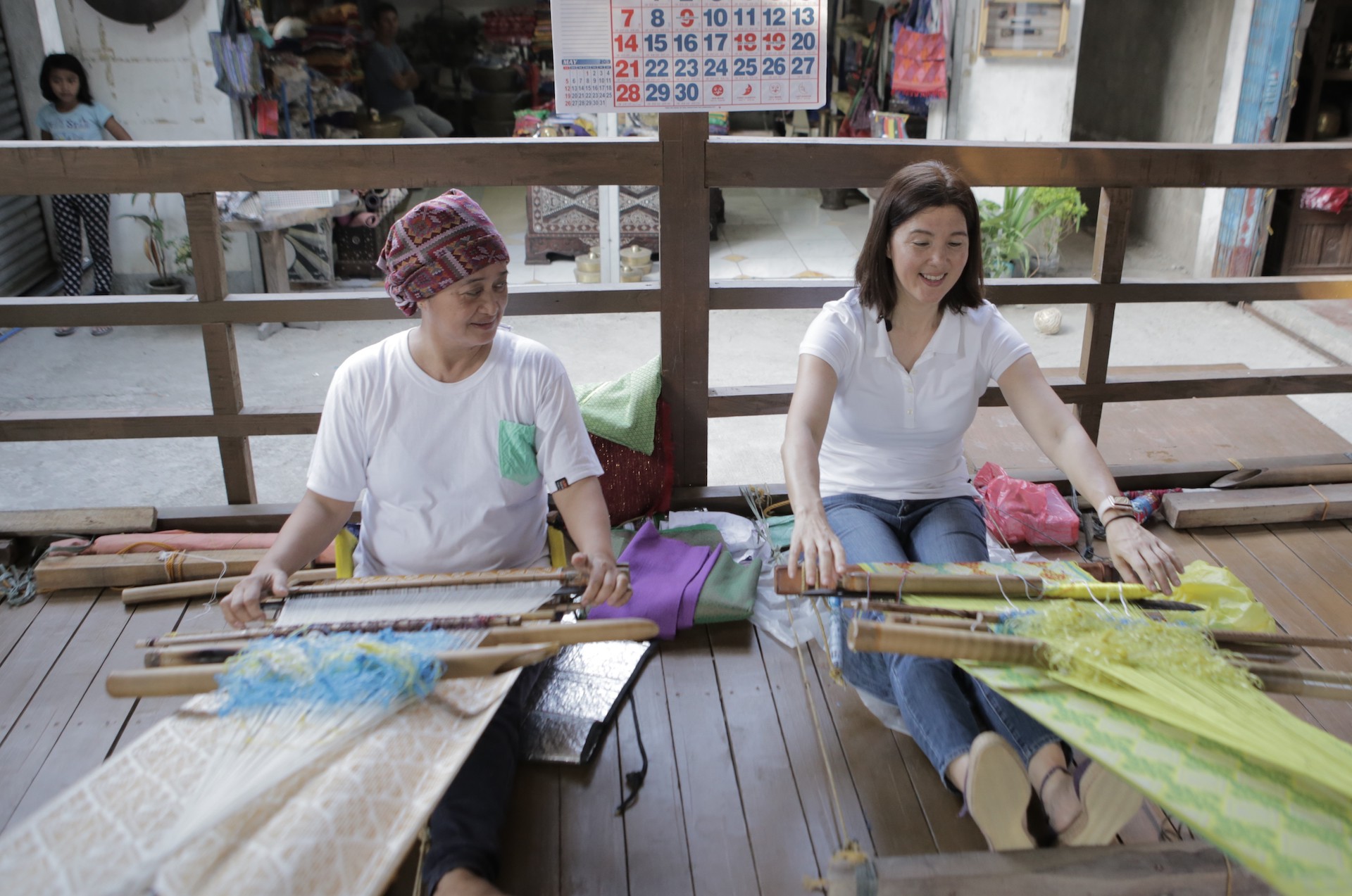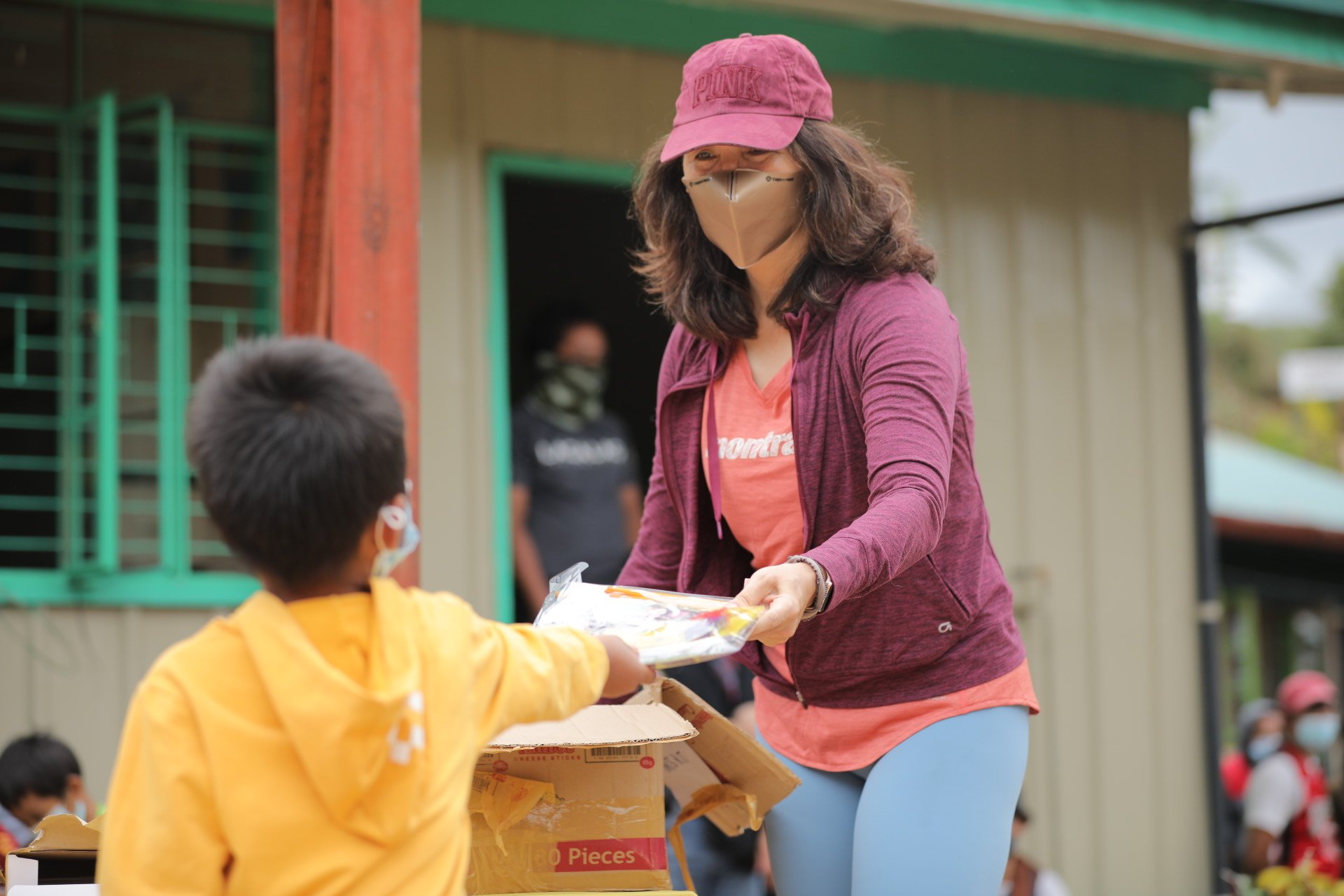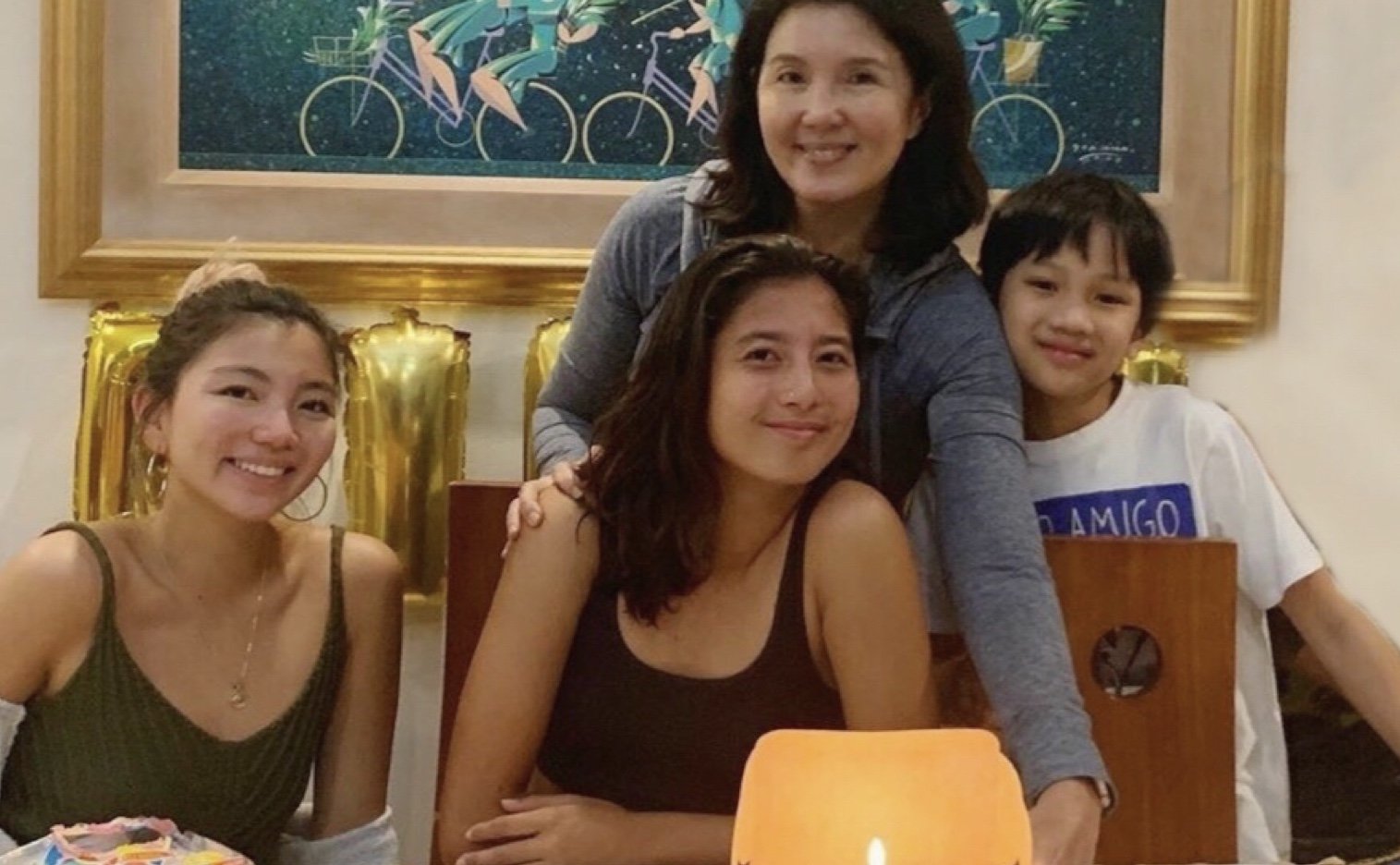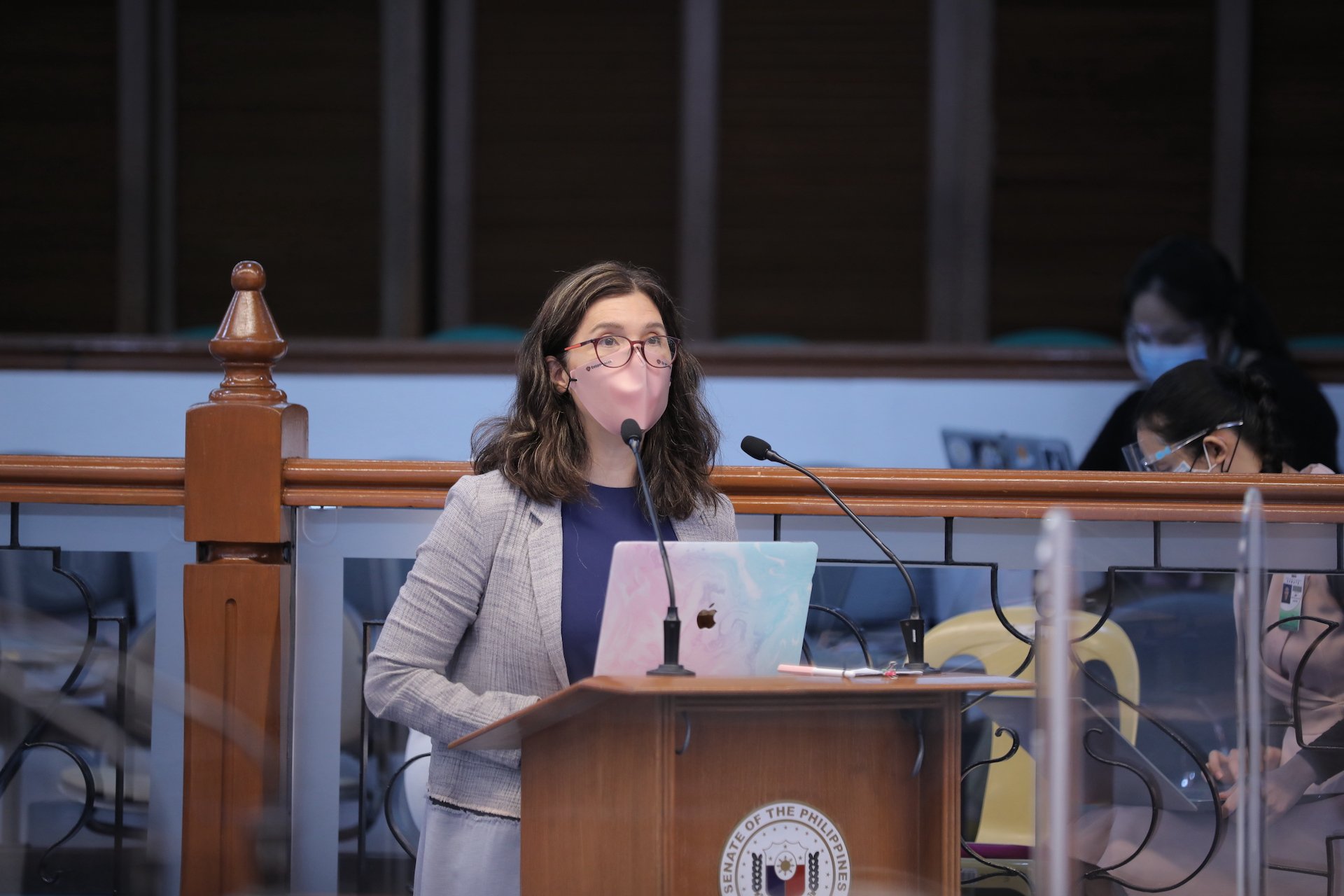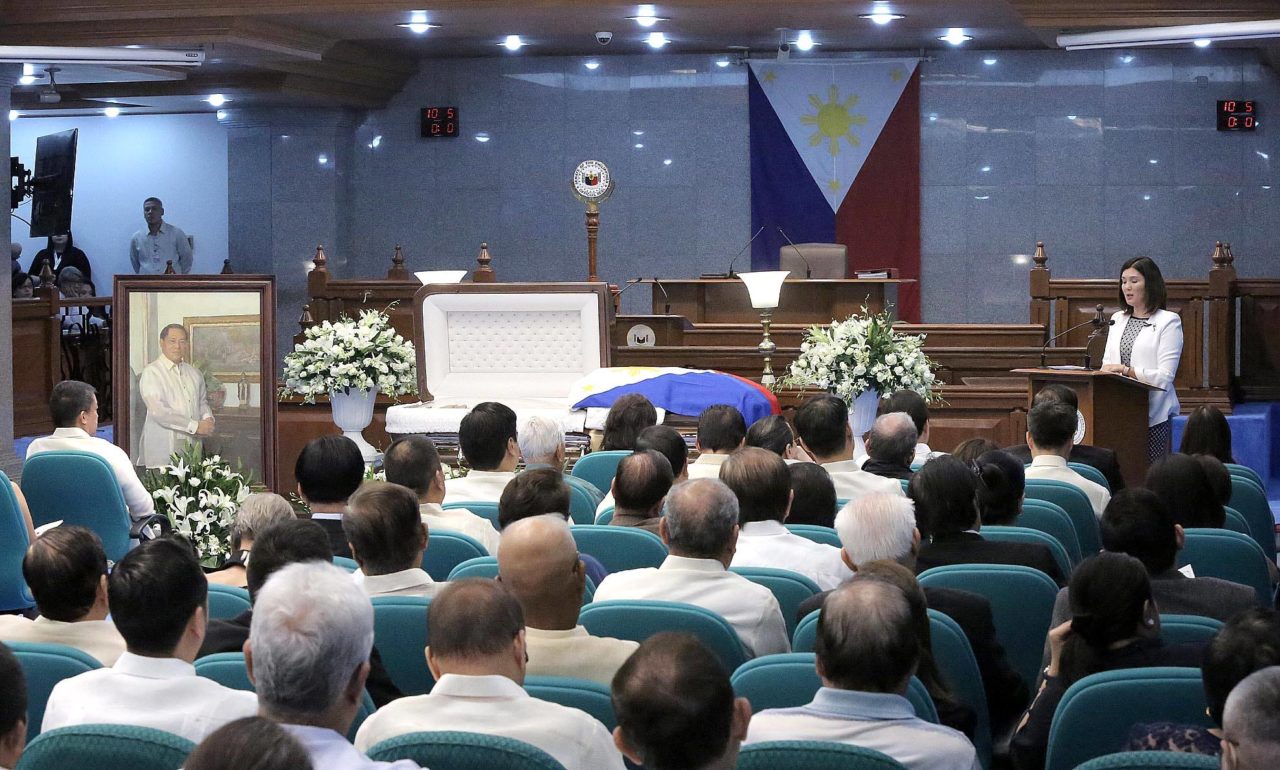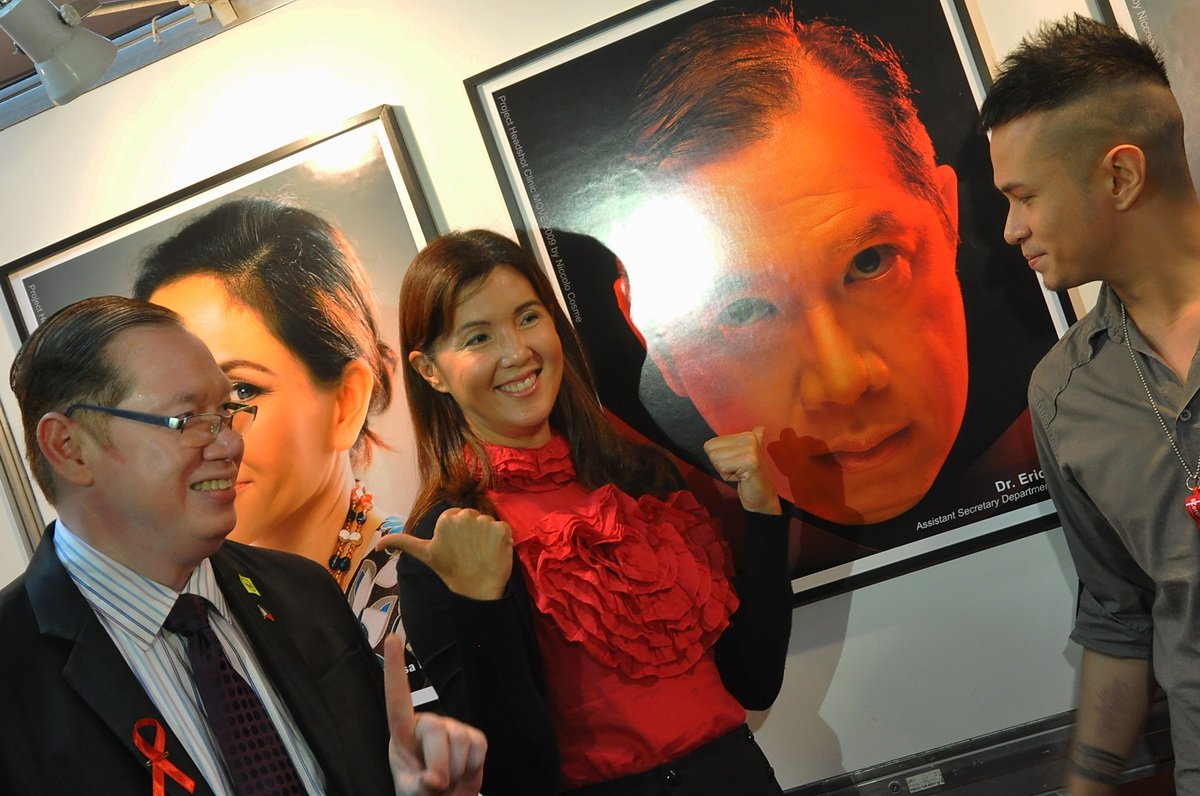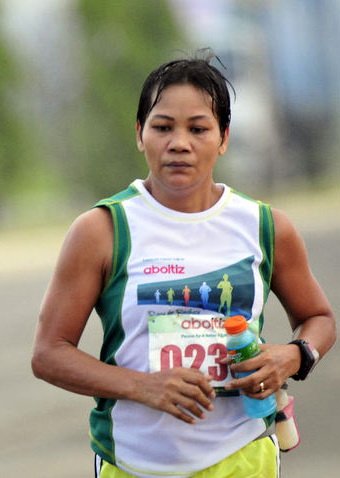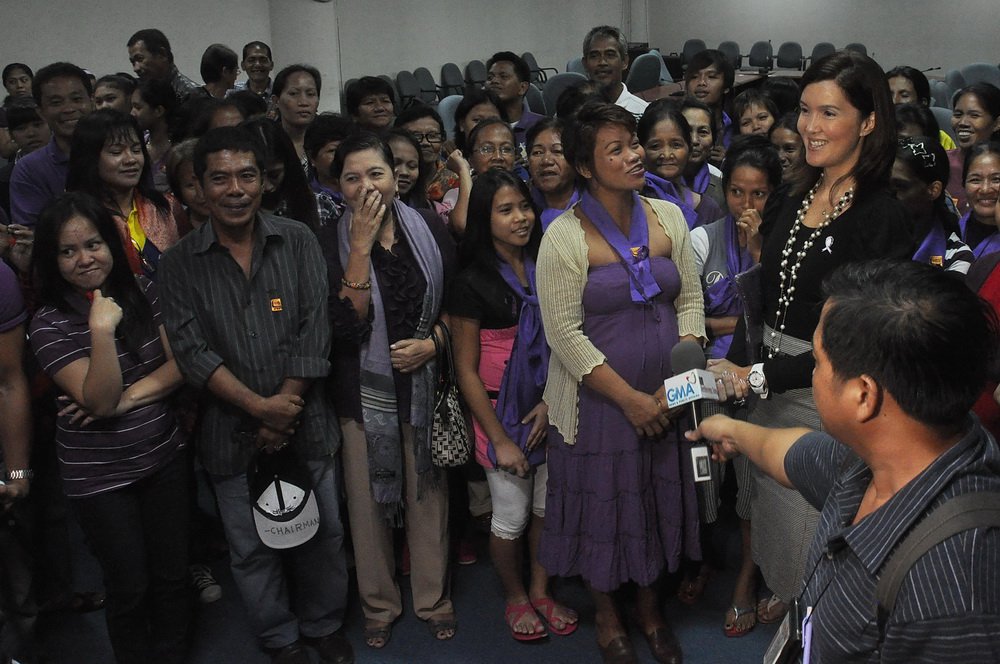It is this probinsyano boy from Baler who would later become UP President, Senator, and Senate President, pass landmark legislation in education, many of which I had the privilege of working on with him.
Category: Senate
Farewell, seatmate
Last October 30, I lost a mentor. My former seatmate, mentor, and friend Senator Flavier passed away. Read More
Legislative Agenda for 2014
On the first Saturday of the year, my amazing Senate legal team indulged me and let me buy them a cup of coffee each Read More
The Woman who did not Run Fast Enough
Running was her escape. Sadly, she was not able to run fast enough or far enough from this man, her very own husband who would be her murderer.
A Sea of Purple
1 August 2011
Today I walked into a sea of purple in the Senate Session Hall. Read More
A Quiet Day in the Senate: Family Code Amendments and A1H1 Vaccination
September 9, 2010
Thursdays are usually quiet in the Senate. It is not a session day, but there are hearings in the morning and the afternoon.
I had two things going on that day. One was the hearing I chaired on the Committee on Women, Youth and Family Relations with respect to the amendment of various provisions of the Family Code.
Atty. Mel Sta. Maria, a Professor in the Ateneo Law School, shared his expertise on Family law.
My hearings are usually quiet. Especially when we dissect provisions of the law, it can get a bit legalistic, perhaps boring for some. But Family law, is a very interesting subject matter because it defines our rights as persons and our relationships with each other – marriages, parent and child relations, siblings etc. It was one of my favorite subjects as a law student. So revisiting it now as a law maker, was something else. I didn’t have the same nervousness and apprehensions I did as a student or someone taking the bar exam. It was actually fun, discussing the various provisions of the law, analyzing their flaws, going through the various views of legal luminaries, and considering the possible amendments.
Some of the provision of the Family Code that we reviewed were:
– Art. 73. On the right of a spouse to exercise any legitimate profession.
– Art. 63. The name a married woman may use
– Art. 111. The right of a spouse to encumber their exclusive party.
– Art. 236. Liability of the parents for damages caused by their children between 18 and 21 who live with them.
-Art 26. Capacity of a Filipino to remarry if her foreign spouse obtains a divorce.
-Art 75. Establishing the property regime, when there is no marriage settlement or it is void.
We had a lively discussion on all of the above provisions. We suspended the hearing until further notice .
In the room across the hall, we had another activity going on… the free vaccination against AH1NI for senate employees and selected groups, a joint project of my office and the Department of Health. 
London Part I: Women Power thru Pinay OFWs and the Queens of England
After my conference in Geneva, I flew to London. I had requested the Philippine Embassy to set-up a dialogue with the Pinay OFWs, particularly the nurses. I have been working on our problem brought about the migration of our health professionals and knowing that we had a large number of nurses in the UK, I wanted to meet them.
Before the meeting, I chatted with Ambassador Lagdameo who is an old friend of my mom and dad. He knew my parents when they were still studying in the University of Michigan and actually gave me my very first present when I was born! Imagine that. It was a delight chatting with him. I asked him and Con Gen de Vega about their visit to the queen where the ambassador presented his credentials and they had to bow and curtsy 3x in keeping with protocol.
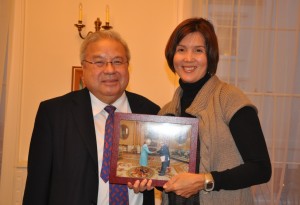
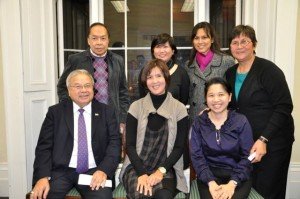
I was delighted to be among such an empowered group of Pinays! Among others, the group included a nurse, teacher, businesswomen, solicitor, domestic worker, chef and urban planner.
We had a lively discussion at the Embassy. Ambassador Lagdameo and Consul General Tess de Vega welcomed everyone. I began by giving the women a background of the issues affecting women and why I believe legislation and policies still need to be improved. I talked to them about the Magna Carta of Women. I also mentioned the Millennium Development Goals and the salary standardization law (see my previous blog on the discrepancy between the salaries men and women. I explained my work in the Inter-Parliamentary Union (IPU), where I currently am the President of the Women Parliamentarians.
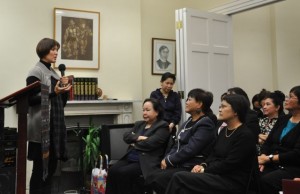
For this talk, I focused on migration issues and how migration affects both the OFWs and the families left behind. I emphasized the need to create more programs directed at the social impact on OFWs and their families.
After my talk, we had an open forum to give the women a chance to air their views and concerns. Many of them spoke of the long hours they endured to send money back home. Many worked 2-3 jobs! But despite the long hours, they felt rewarded and fulfilled in their ability to improve their standards of living and provide for their families.
They also spoke of the difficulty of being away from their families, the frustration of not getting the support and understanding they needed from loved ones back home. Many nodded their head, when one woman spoke about the despair of working so hard and yet feeling unappreciated.
They were a hardy happy set of women, confident about the lives they made for themselves in the UK. They spoke of improving their support system for newcomers to help them adjust to the lifestyle in the UK and the need to encourage Pinays to get better by getting a better education.
The next day I went to the Financial Learning Campaign sponsored by the Central Bank and the Philippine Embassy. I think this is a great program and committed my support for continuing financial literacy programs for the OFWs and their families back home.
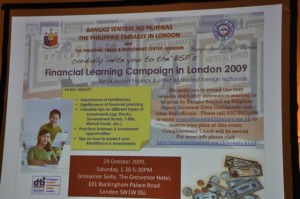
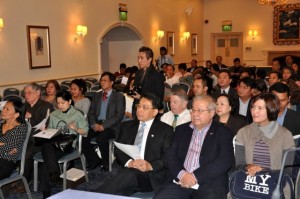
In between those meetings, I was able to visit a few historic sites including the Tower of London and West Minister Abbey. I am an enthusiastic student of history, including English history. And I was thrilled to visit the places, I had only read about in the past. I have always believed that we can learn a lot if we look back into history.

Suffice it to say, at a time where women were subservient to men, England had a succession of Queens that ruled the land. Each of these Queens have their own stories to tell. I’ve been reading about the lives of queens, including Queen Katherine of Aragon (first wife of King Henry VIII), Queen Mary and her sister Queen Elizabeth (daughters of King Henry VIII). If I can find the time, I hope to blog about my thoughts on the lessons we can learn from the women and the Queens of England in 15 and 16 century England.
IPU Meeting in Geneva 2009
Every October, Parliamentarians from all over the world meet in Geneva for the Inter-Parliamentary Union (IPU) conference. I am currently the President of the Women Parliamentarians and our committee of women meets here once a year to take stock of our work and to prepare for the Meeting of Women Parliamentarians the next year (2010 will be in Bangkok).
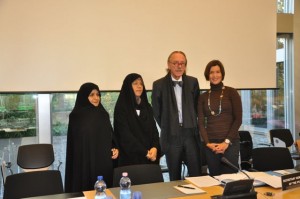
In the Women’s Committee, we discussed the gender dimension on the topics pending in the IPU’s standing committees:
– On the topic of Cooperation and shared responsibility in the fight against organized crime, in particular human trafficking. it was underscored that human trafficking was often under-acknowledged and that the first step was for parliaments to call on governments to recognize the full extent of the problem and develop strategies to address it. This in fact is a big problem in the Philippines and much needs to be done.
– On the Role of Parliament in developing cooperation in order to accelerate achievement of the MDGs, the women emphasized the need to focus on MDGs 4 and 5, on child and maternal mortality. This has been my campaign in the country for the last two years. We need more midwives to the barrios, more birthing facilities and access to information and support re family planning.
– On Youth Participation in the Democratic Process, it was suggested that different strategies be considered to include young people in parliamentary debates and hearings, parliamentary youth forums and political party work. The need for gender-sensitive training was also emphasized. I met with the representative of UNICEF to brainstorm on this item later in the week. This would be a good project to implement back home.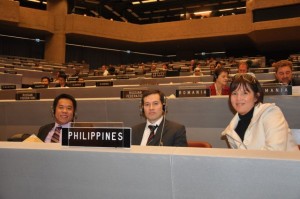
The Secretary General Anders Johnson briefed us on IPU’s campaign “Parliaments Take Action on Violence Against Women.” IPU is urging parliaments to take part in this campaign and organize activities to mark the International Day for the Elimination of Violence against Women on November 25. This has also been my campaign for the past few years (my related blogs on violence).
Our Gender Partnership Group met twice. We looked at the IPU budget and noted that due to budgetary support for gender issues, the IPU has been able to focus on many gender related activities. As for participation in the IPU, the Group noted that there are still 6 countries without women parliamentarians from the Gulf States and the Pacific Islands.
At the second meeting, we met with the Senator from Palau who briefed us about the recent election of two women in the Palau Senate. He explained that Palau is actually a matriarchal society. Women are king makers in the communities but do not themselves run for office. I opined that there may be a need for re-orienting society to support women in leadership positions.
At the General Council Meeting on the last day, the body approved the resolution on the emergency item on Global Food Security. I supported an amendment to this resolution, urging governments to make microfinance funds available, guaranteeing that at least 50% would go to women.
Finally, I presented the report of the women parliamentarians to the body. Although the IPU meeting formally closed on Wednesday, there were still events going on, including the seminar on the Convention on the Elimination of All Forms of Discrimination Against Women, which I would chair the next day.
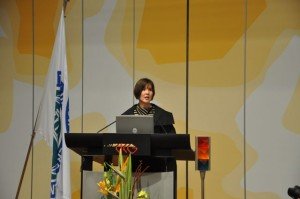
Over the years, I have made friends with parliamentarians from different countries. It is always a pleasure to see them during the IPU meetings. Many of them are seasoned parliamentarians, and I always go home inspired by the people I meet and the lessons I learned.
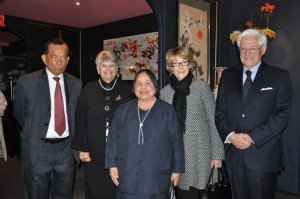
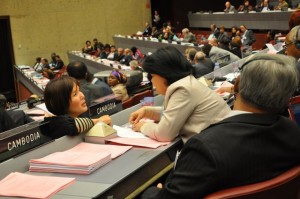
Government Employees Deserve a Better Deal
Our country is in the midst of a health and education crisis. We need to attract and retain the best in the profession. One way to do this is to pay them well.
The Senate and the House each passed their own resolution, which are both referred to as the Salary Standardization Law 3 (SSL 3) which seek to revise the current compensation structure for government employees and increase their pay.
Last week, the sponsor in the Senate, presented a survey showing the Philippines at the lowest end of the scale in terms of monthly salaries of government employees and officials. There are also inconsistencies such as overlapping of salaries between salary grades.
I support the objective of SSL 3. However, during the hearings and upon a more in-depth study of the measure, it became clear to me that the teachers and health workers are not being given their fair share in the increase of salaries.
At the start of my interpellation on the floor, I laid the basis of my appeal for higher wages for health workers and teachers. There are hospitals in the provinces that have closed down due to the lack of doctors. Hospitals are grossly understaffed and many government nurses are overworked, often working double shifts just to cover the needs of their patients. The same goes with teachers, many of them work double, some even triple shifts.
In the case of the nurses, their current salary grade is Salary Grade (SG) 10, which is equivalent to P12,026 per month. The Nursing Act of 2002 (RA 9173) assigned the starting position of all government nurses at Salary Grade (SG) 15 equivalent to P25,067 per month. Since the law was passed, the nurses have been lobbying for its implementation. Seven years later, this law has yet to be implemented. Now, by virtue of SSL 3, the starting pay of a nurse will be pegged at SG 11 equivalent to P18,088 per month, four salary grades lower than provided for in the Nursing Act!
This is totally unacceptable. We are taking back from our nurses what our previous Congress has accorded them. We are effectively violating their right to non-diminution of compensation, a principle that is deeply ingrained in our labor laws.
With respect to teachers, last year, the Senate passed a bill increasing the salary of teachers by P9,000 over the next three years. But now, under SSL 3, only a P6,500-pay increase to teachers is granted over the next four years.that amounts to an increase of only P1,625 a month each year.
During my interpellation, I also pointed out that there is a gender bias involved here. Studies done internationally and locally show that professions that are traditionally dominated by women, like teaching and nursing, are pegged at a lower salary grade than other professions.
In fact in 1991, the Commission on Education recommended the salary grade of a teacher 1 be SG 17 equivalent to a 1st lieutenant in the Philippine Army. As it is SSL 3, pegs nurses and teachers at SG 11, while a 2nd Lt is at salary grade 19, a difference of almost P10,000. An AFP private’s take home pay is even higher than a teachers. This bias can also seen when compared to other professions.
The Department of Budget and Management expressed regret that the salaries of these professionals could not be further increased due to lack of funds. But I beg to differ. The total package allocated for the salary increase is P20 Billion. There is P75 Billion in unprogrammed funds. These are funds left to the full discretion of the President. Is it too much to ask to allocate some of these unprogrammed funds for salaries?
Unfortunately, my amendment to increase their salaries were rejected. What was accepted was my amendment that if there is a P50 Billion increase of revenue each year, the government will allocate 5% or P2.5 Billion for the salaries of government employees. Another amendment I pushed for was a salary differencial for Science and Math teachers. This was accepted.
During the deliberations, I also stressed the need to look at the impact on our national development. By continuously depriving our teachers and nurses of just wages, we are also jeopardizing our Millennium Development Goals (MDGs), particularly MDG 2 (achieve universal primary education) and MDG 5 (improve maternal health).
Let me end by saying, it is my position that government should acknowledge that we are in the midst of a health and education crisis. One way to address this is by having competent professionals in these fields. It goes without saying that they should be paid well.
What Everyone should know about Violence Against Women and Children
Violence comes in many forms. It is not just physical, like a black eye or a swollen face. Other forms of violence are less visible but equally painful and damaging.
Incidents involving video-taping and the posting/circulating of such material has brought about many questions as to what kind of abuse or violence is punishable.
There is currently no law that specifically punishes the acts of video-taping a sexual or other private act and circulating this content without the consent of the persons involved. I filed a bill in the senate known as The Anti-Video Voyeurism Act of 2009 that seeks to punish these acts. I hope this will be heard and passed into law soon.
At present though, victims can take refuge in Republic Act 9262 otherwise known as the Anti-violence against Women and Children Act of 2004 which penalizes various forms of violence. A victim can also claim for damages.
Sometime ago I wrote about my campaign along with women parliamentarians all over the world to end violence, “Say No to Violence Against Women“.
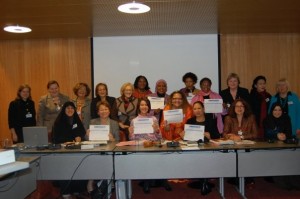
Many of my colleagues joined this signature campaign to end violence.
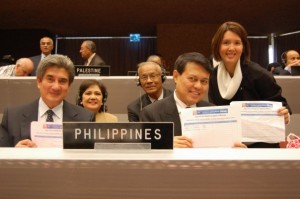
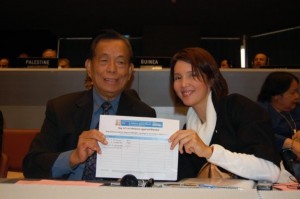
My office and some local groups we work with conduct seminars to increase awareness on this issue.
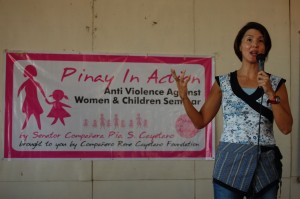
Below is a partial replication of the Primer on Violence against Women and Children that my office distributes. It includes contact information on where to go for help.
What are the different acts of violence.
1. Physical violence – acts that include bodily or physical harm;
2.Sexual violence – acts which are sexual in nature;
3.Psychological violence – commission or omission of acts which cause mental or emotional suffering of the victim;
4.Economic abuse – acts that make a woman financially dependent on the offender.
Who are protected under the law?
The Anti-VAWC Act protects women and their children, specifically:
1.Wife or former wife of the offender;
2.Woman with whom the offender has or had a dating or sexual relationship;
3.The mother of the child of the offender;
4.The child, whether legitimate or illegitimate of the woman.
Who are punished by the law?
The following are liable:
1.Husbands or former husbands;
2.Any person with whom the victim has or had a sexual or dating relationship (e.g. boyfriends, live-in partners, or lesbian partners);
3.Any person with whom the victim has a common child;
4.Father of the child-victim
What can a victim of violence do?
The victim can file any or all of the following:
1.Protection Orders
a. Barangay Protection Order
b. Temporary and Permanent Protection Orders
2.Independent Civil Action for Damages
3.Criminal Action for Violation of the Anti-VAWC Act
What is a Barangay Protection Order (BPO)?
A BPO is the protection order issued by the Punong Barangay, or by any kagawad, if the Punong Barangay is unavailable. It commands the offender to refrain or stop from committing or threatening to commit harm to the victim. The Order is valid for only 15 days.
What is a Permanent Protection Order (PPO)?
A PPO is the Order issued by the court commanding the offender from further committing or threatening to commit harm to the victim. It is issued after notice and hearing wherein the offender is given the opportunity to present his evidence. A PPO is effective until revoked by a court upon application of the victim or by an authorized applicant, if the application was not filed by the victim.
What are the penalties for committing VAWC?
If the courts have proven that the offender is guilty of the crime, he may be imprisoned and will be obliged to pay P100,000 to P300,000 in damages. The length of imprisonment depends on the gravity of the crime.
WHO TO GO TO FOR HELP:
(Updated directory as of 28 November 2012)
• Law enforcement:
National Bureau of Investigation -VAWCD
Tel. (02) 5256028
• Crisis Centers:
Women’s Crisis Center, East Ave. Medical Center
Tels. (02) 5450836
DSWD Crisis Center
Tel. (02) 9517433
Quezon City Hall
Tel. (02) 9271588, 9269344
Women’s Desk Philippine General Hospital
Tel. (02) 5548400 loc. 2536
• Legal Assistance:
Women’s Legal Bureau
Room 505, UP College of Social Work and Community Development (UP-CSWCD)
University of the Philippines-Diliman, Quezon City
Tel. (02) 9214389
Department of Justice Public Attorney’s Office (DOJ PAO)
Tel. (02) 929 9436 loc. 106 & 107
• Counseling:
Gabriela
Tel. (02) 3743452
• Information/Advocacy:
Saligan
Tel. (02) 4266001 loc 4858-60

